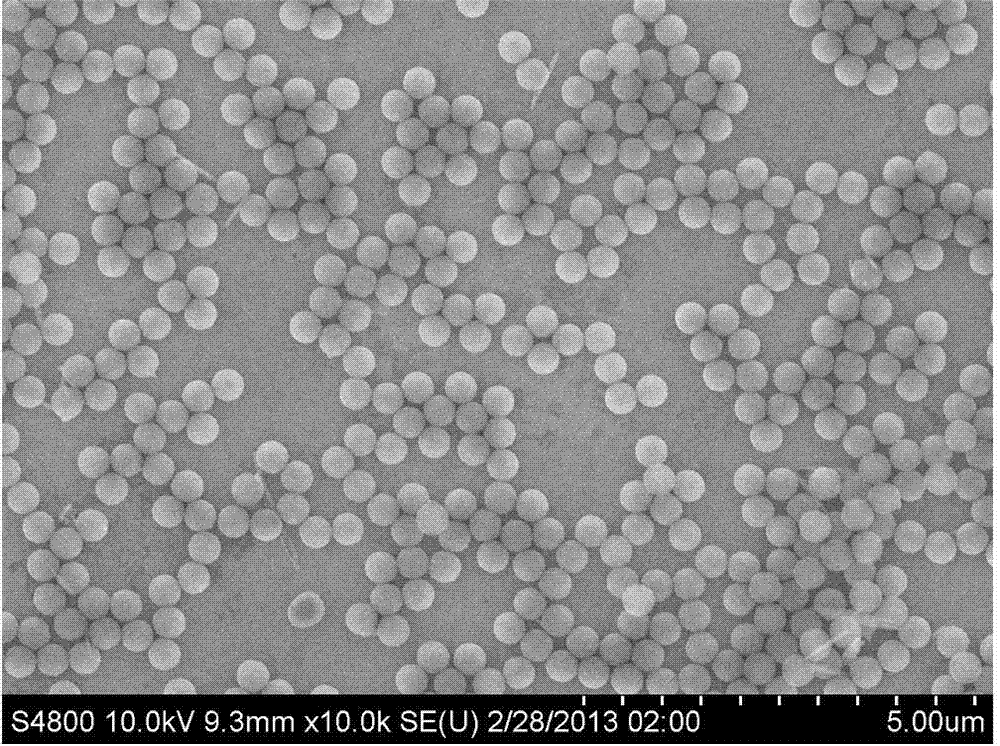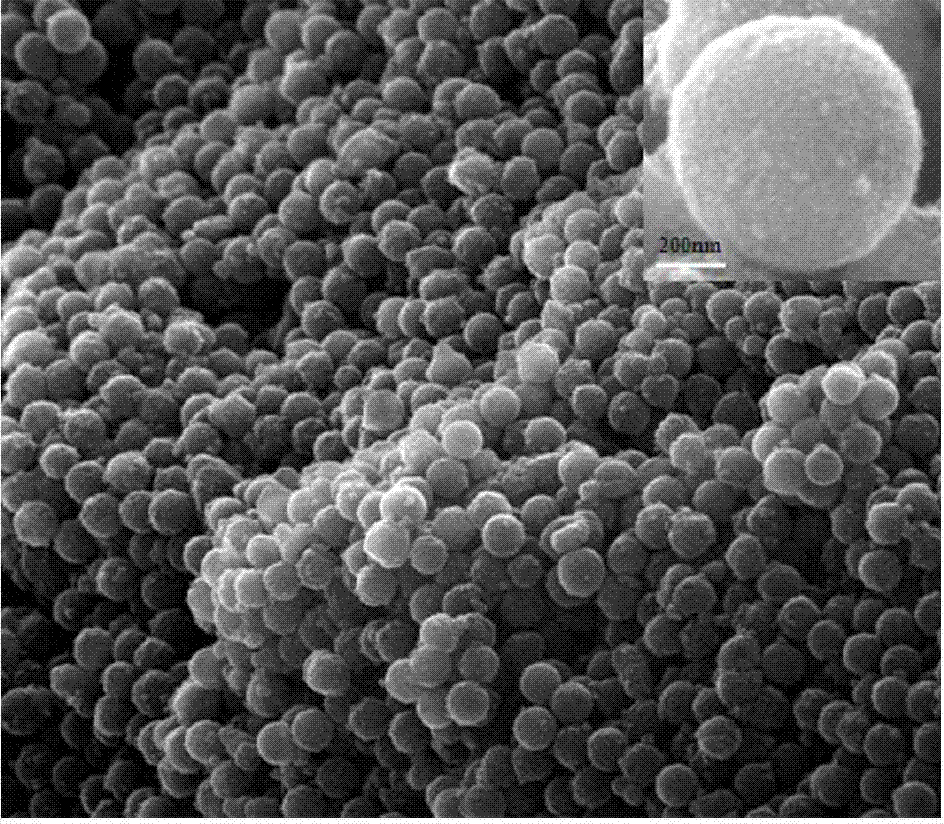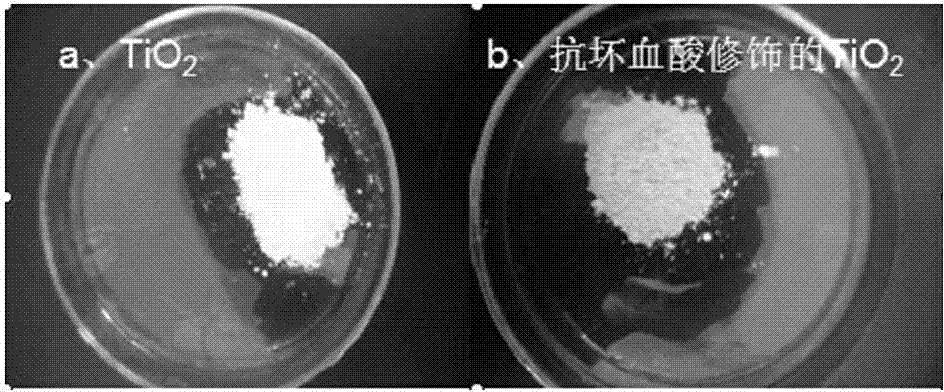Method used for rapid separation and detection of organophosphorus pesticides in water
A technology for organophosphorus pesticides and water determination, which is applied in material separation, measurement devices, analytical materials, etc., can solve the problems of difficult extraction of biological enzymes, complicated operations, easy inactivation of enzyme activities, etc., and achieves low-cost laboratory and on-site detection. The effect of universal practicability and improved specific surface area
- Summary
- Abstract
- Description
- Claims
- Application Information
AI Technical Summary
Problems solved by technology
Method used
Image
Examples
preparation example Construction
[0038] Step 2, preparation of photocatalytic thin-layer chromatography plate:
[0039] Weigh a certain amount of TiO modified with ascorbic acid 2 (Particle size is 500nm), silica gel G, 0.5% (m / v) sodium carboxymethyl cellulose, stir evenly (the mass ratio of the three is 2:3:14), spread on a 2.5×10cm glass plate, put In an electric thermostat blast drying oven, dry at 50-60°C and activate at 105-110°C for half an hour to make a thin-layer chromatographic plate such as Figure 5 shown;
[0040] Step 3, chromatographic separation and chromogenic determination of organophosphorus pesticides:
[0041]Draw a sample starting line on the activated TLC plate at 10mm from the starting end, and the sample volume is 20-50uL; use a pipette to pipette n-hexane:acetone:methanol:water=5:2:1.5: Put 10mL of 1.5 (v / v) mixed developing agent in the developing cylinder, put the printed TLC plate into the developing cylinder, cover the cylinder cover to avoid light and perform chromatography ...
Embodiment
[0044] In order to verify the applicability of the method of the present invention, the applicant carried out separation and determination according to the organophosphorus pesticide specified in the domestic application water standard (GB5749-2006): weigh ascorbic acid modified TiO 2 (Particle size is 500nm), silica gel G, 0.5% sodium carboxymethyl cellulose (the mass ratio of the three is 2:3:14) and stir evenly, spread it on a 2.5×10cm glass plate, put it into the electric heating constant temperature blast drying In the box, dry at 60°C and activate at 105°C for half an hour to make a thin-layer chromatography plate; draw a starting line for spotting the sample at the starting end of the thin-layer chromatography plate at 10mm, and pipette the normal Alkane: acetone: methanol: water = 5:2:1.5:1.5 (v / v) mixed developer 10mL, placed in a developing cylinder, take 50μL concentration as a certain concentration (0.02mg / L, 0.05mg / L, 0.1 mg / L, 0.2mg / L, 0.6mg / L) of mixed pesticide...
PUM
| Property | Measurement | Unit |
|---|---|---|
| particle diameter | aaaaa | aaaaa |
Abstract
Description
Claims
Application Information
 Login to View More
Login to View More - R&D
- Intellectual Property
- Life Sciences
- Materials
- Tech Scout
- Unparalleled Data Quality
- Higher Quality Content
- 60% Fewer Hallucinations
Browse by: Latest US Patents, China's latest patents, Technical Efficacy Thesaurus, Application Domain, Technology Topic, Popular Technical Reports.
© 2025 PatSnap. All rights reserved.Legal|Privacy policy|Modern Slavery Act Transparency Statement|Sitemap|About US| Contact US: help@patsnap.com



